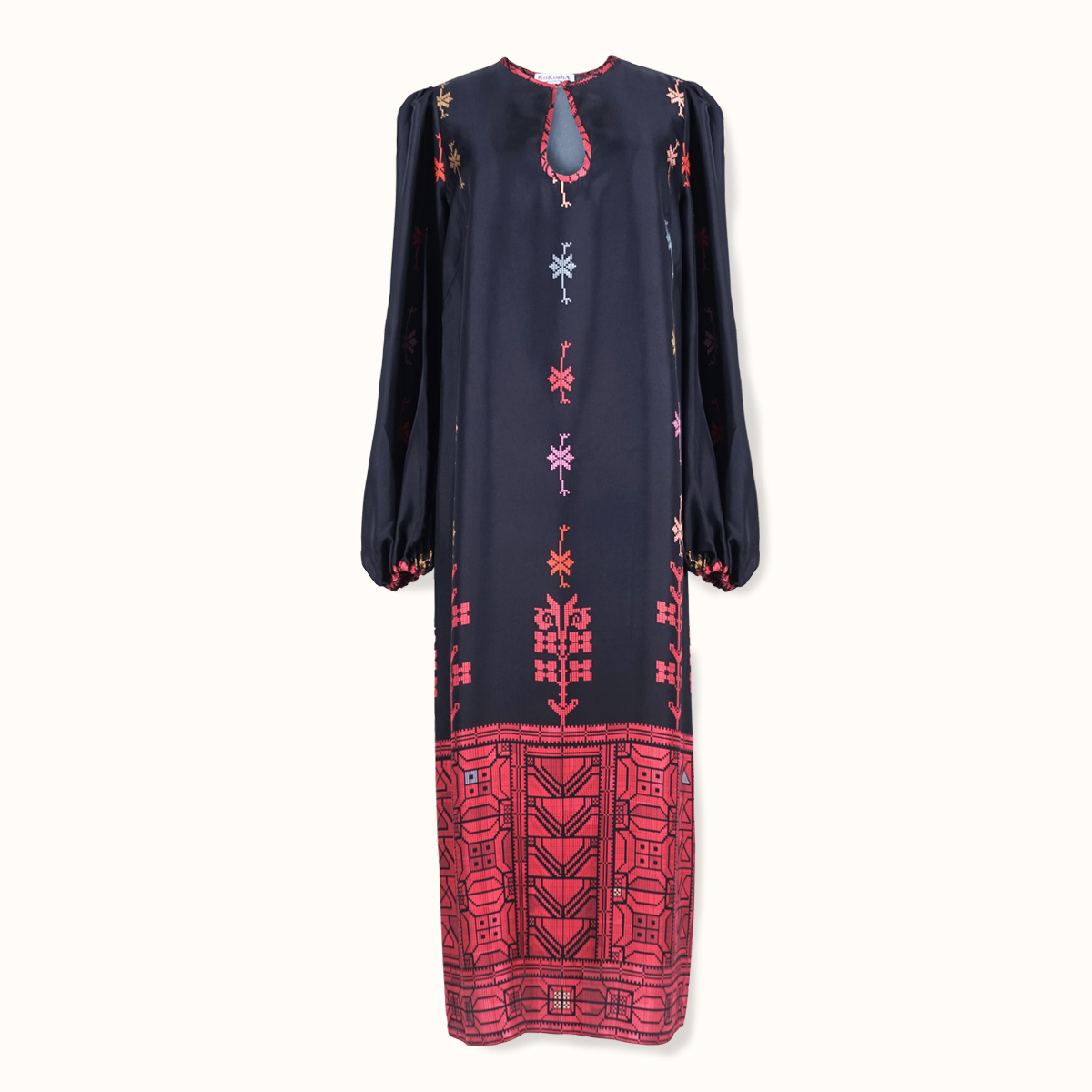Dress "DESERT FLOWERS" silk on a black background
Design is based on the traditional embroidery of the Bedouins, nomadic Arab tribes living in the Negev desert region.
Design and production: KOKOSHA.
Material: 100% silk-twill.
Sizes: S, M, L
Please check availability and sizes on WhatsApp.
The embroidered women`s costume of the Bedouin tribes is fascinating in its beauty and richness. Its creation was part of a wider cultural tradition. Each tribe had its own unique style and patterns. Bedouin women took many years to prepare their dowry. It consisted of blankets, jewellery and embroidered items such as cushions, veils, jackets and dresses for everyday wear and special occasions. A girl would start embroidering her dowry as soon as she learnt the skill. Jillayeh was the most luxurious, richly embroidered dress she produced. It was sewn from cotton fabric dyed black or indigo, and was densely decorated with embroidery on the square qabbeh basque and skirt. Satin basque, embroidered taffeta inserts, silk-decorated sleeves - everything said that no expense was spared on this item.
The bride first wore Jillayeh for the ritual of going to the well amidst singing and clapping women, marking her newly married status.
In the past, colours for embroidery threads were prepared from natural dyes derived from plants, insects, shells, etc. Colour mattered. Red of all shades, including pink, was used by married women and represented love and happiness. Unmarried women and widows chose purple and blue.
Bedouin embroidery patterns have cultural significance. The popular cypress pattern symbolises the tree of life. Tree and flower patterns are often used and signify growth and abundance. The camel pattern symbolises patience and strength.







